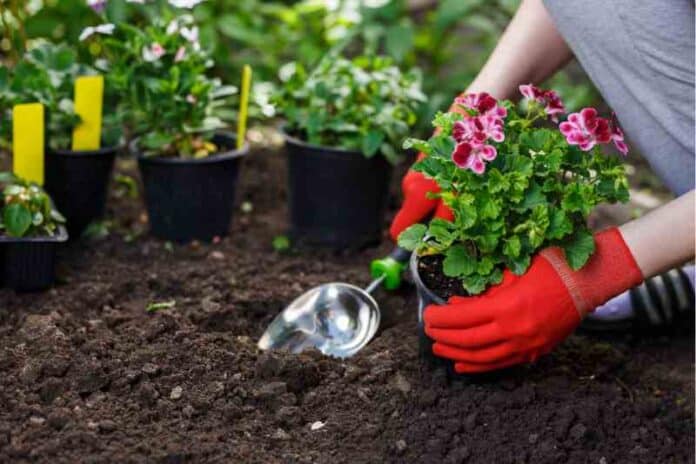
Gardening isn’t just about nurturing plants; it’s a way to connect with nature, reduce your carbon footprint, and contribute to a more sustainable future. Even though the season is turning to fall, it’s a good time to begin training yourself in sustainable gardening practices.
In this blog post, we’ll delve into the world of sustainable gardening, exploring eco-friendly practices, biodiversity conservation, and the tools and practices you can invest in to create a thriving green space that benefits both you and the planet.
Key Tools for Sustainable Gardening
Headlamps for Nighttime Gardening: As the days get shorter, you may find yourself working in the garden close to dusk. A quality headlamp is a valuable tool that comes in handy at this time. Headlamps keep your hands free and provide a focused beam of light to help you navigate your garden and perform tasks like weeding, harvesting, or inspecting your plants without disturbing them.
Insect Repellent: When spending time in the garden, especially during warmer months, protecting yourself from pesky insects is vital. A good quality insect repellent helps keep mosquitoes, ticks, and other biting bugs at bay, allowing you to work comfortably without the distraction of itchy bites. Keep your sustainable practices in mind and opt for natural repellents like those made of eucalyptus oil.
Garden Gloves: Protect your hands from dirt, thorns, and blisters with a sturdy pair of garden gloves. Opt for gloves made from breathable, durable materials that provide a good grip while allowing dexterity.
Foundational Practices for Sustainable Gardening
Composting: Learn how to turn kitchen scraps and yard waste into nutrient-rich compost that nourishes your garden.
Native Planting: Discover the benefits of planting native species, which require less maintenance and provide food and shelter for local wildlife.
Organic Pest Control: Explore eco-friendly methods for pest management, such as companion planting and introducing beneficial insects.
Rain Gardens: Create a rain garden to capture and manage rainwater runoff while enhancing the aesthetic appeal of your garden.
Wildlife Habitats: Design your garden to attract pollinators like bees and butterflies, as well as birds and beneficial insects.
Vertical Gardening: Maximize limited space by exploring vertical gardening techniques, perfect for urban and small-scale gardeners.
Why Sustainable Gardening Matters
Environmental Benefits: Sustainable gardening practices reduce the use of harmful chemicals and pesticides, minimizing soil and water pollution. This contributes to a healthier ecosystem and supports local wildlife.
Resource Conservation: Sustainable gardens are designed to use water efficiently, minimizing waste. You’ll learn how to collect rainwater, choose drought-resistant plants, and implement smart irrigation systems. Not only is this a healthy practice in current times, but also future-proofs your garden against water-tightening measures.
Reduced Carbon Footprint: By growing your own fruits and vegetables, you can reduce your reliance on store-bought produce, which often requires transportation and refrigeration. Sustainable gardening helps lower your carbon footprint. In addition, you’ll feel a new sense of satisfaction to know you are literally eating the fruits of your labor.
Enhanced Soil Health: Sustainable gardening methods, such as composting and mulching, improve soil quality naturally. Healthy soil supports plant growth & reduces the need for synthetic fertilizers. This not only makes your garden happy but also helps visitors like rabbits and birds thrive.
By adopting sustainable gardening practices and using the right tools, including a headlamp for nighttime gardening, you can transform your outdoor space into a thriving, eco-friendly oasis. Whether you’re a seasoned gardener or just starting, this blog post will provide you with valuable insights and actionable tips to embark on your journey toward a more sustainable, green future.





